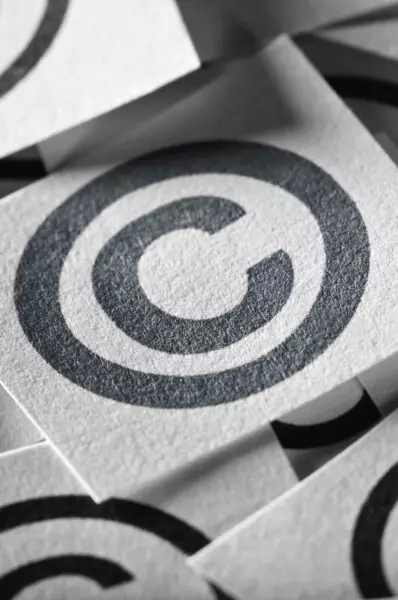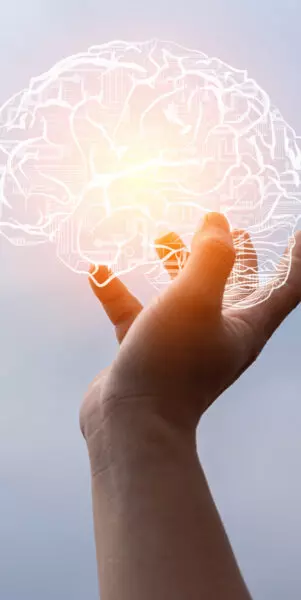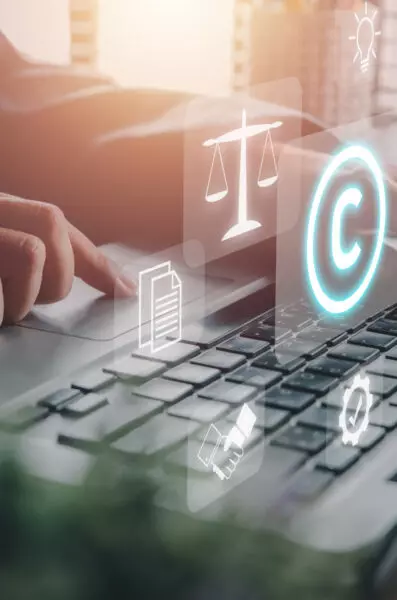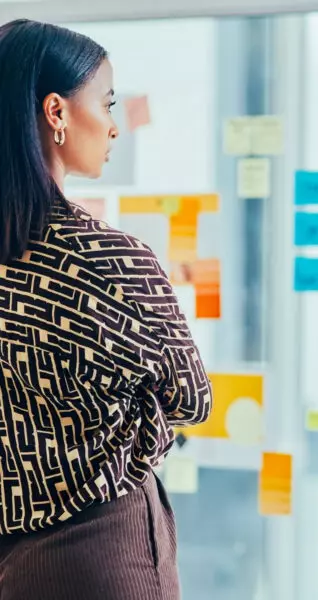At Sul Lee Law Firm, PLLC, we understand that in today’s dynamic business landscape, intellectual property is often the lifeblood of innovation, growth, and success. With a resolute dedication to intellectual property law, we stand as your reliable guide through the complexities of safeguarding and optimizing your creative works and innovative ideas.
Copyright is a cornerstone of intellectual property law that grants creators the exclusive rights to their original works. These rights encompass the reproduction, distribution, adaptation, and public display of the creative works. Copyright protection is vital for cultivating innovation and creativity by providing creators with the legal foundation to control how their works are used and monetized.
What Can Be Copyrighted?
A wide spectrum of creative works can be protected by copyright. This includes literary works like books and articles, artistic creations such as paintings and sculptures, musical compositions, software code, architectural designs, and even digital content like websites and software interfaces. The scope of copyright protection spans across both traditional and digital mediums, guaranteeing creators a thorough defense for their creations.
Consider the following examples to understand the diversity of copyrighted works:
- Film and Video
- Photography
- Music
- Visual Arts
- Literature
- Fashion & Architectural Designs
- Choreography and Dance
- Recipes and Cookbooks
- Crafts and Handmade Items
- Software and Apps
- Advertising and Marketing Materials

What Cannot be copyrighted?
While copyright law provides protection for a wide range of creative works, there are certain things that cannot be copyrighted. Here are some example
-
- Facts and information – ex) A list of ingredients for a recipe or historical facts
-
- Titles and Short Phrases – ex)Title of books, movies, and songs – However, they may be protected by trademarks law in some cases
-
- Government Works – ex) Government reports, legislations, and court decisions.
-
- Functional Elements – ex) Utilitarian features of a tool or a machine – However, they may be protected by patent law
-
- Common Symbols and Shapes – ex) A simple circle or a basic star shape
-
- Ideas, Procedures, and Processes – Theses are typically covered by patents or trade secrets
-
- Blank Forms and Templates – ex) Blank forms, templates, or standard forms used for practical purposes
-
- Public Domain Works – Works that are in the public domain, meaning they are no longer under copyright protection, cannot be copyrighted again.
Understanding what can and cannot be copyrighted is essential for creators and users of intellectual property to respect the boundaries of copyright law while fostering creativity and innovation

At Sul Lee Law Firm, we offer a wide range of copyright-related services tailored to your needs:
-
- Copyright Registration: Our experienced legal team guides you through the copyright registration process, helping you secure official recognition of your creative work. Registration enhances your ability to enforce your rights and provides a strong foundation in case of legal disputes. From gathering the required documents to coordinating with the appropriate authorities, we’re here to simplify the process and manage the complex details on your behalf.
- Copyright Infringement: In the unfortunate event of copyright infringement, our dedicated team is here to help you quickly take the necessary legal steps against anyone who improperly uses your creative works. We believe in safeguarding your rights and making sure your ideas are kept safe. If someone uses your work without permission, we’ll guide you through the process of addressing this issue. This involves sending official notifications and, if needed, taking further actions to protect your rights. Your creative voice matters, and we’re here to ensure it’s respected while your valuable creations are kept secure.

Common copyright issues that can arise in the e-commerce industry:
- Product Images and Descriptions on E-Commerce Platforms: Unauthorized use of copyrighted product images and descriptions by e-commerce sellers on platforms like Amazon, Etsy, and eBay can lead to claims of copyright infringement. This is particularly prevalent when sellers utilize images and descriptions without obtaining proper licensing or permission from the copyright owner.
- Counterfeit Goods: E-commerce platforms such as Amazon, Etsy, and eBay can inadvertently host sellers who offer counterfeit or imitation products that infringe on the copyrights of genuine brands. This includes unauthorized replicas of popular clothing, accessories, and electronics.
- Design and Artwork: E-commerce platforms like Amazon, Etsy, and eBay often showcase products using images that include designs, artwork, or graphics. If these elements are copyrighted, using them without permission can result in legal challenges.
- Website Content: E-commerce websites might inadvertently use copyrighted content without proper authorization. This could include text, images, graphics, and multimedia content used on the website.
- Linking and Embedding: Sharing copyrighted content like images, videos, or music by linking to or embedding it on an e-commerce platform without permission can result in copyright infringement claims.

DMCA Takedown Letters: Our firm is here to help you make use of the Digital Millennium Copyright Act (DMCA) to fight against online copyright infringement. When your creative work is being used without your permission, we step in to draft powerful takedown notices. These notices are sent to the relevant online platforms hosting the infringing content. Our experts work to ensure that unauthorized use of your work is swiftly addressed and removed from different online platforms. By taking advantage of the DMCA, we help you protect your intellectual property rights in the digital realm, making sure your creations receive the respect they deserve.
Drafting and Reviewing Contracts: We excel in crafting contracts that pertain to copyright and other intellectual property matters. Whether it’s licensing agreements, collaboration contracts, or content distribution agreements, we ensure your rights are safeguarded.
* Addition of DMCA infographic *

Common Industires that benefit from Copyright Protection:
-
- Advertising and Marketing: Agencies and marketers use copyright to protect their ad campaigns, visuals, slogans, and promotional material
-
- E-commerce and Digital Content: E-commerce businesses, including online marketplaces and content creators, utilize copyright to protect product descriptions, images, and digital media.
-
- Beauty and Fashion: Fashion designers protect their clothing designs and patterns using copyright, while also considering trademark protection for their brands.
-
- Media and Journalism: News outlets and journalists protect their articles, photographs, and multimedia content through copyright.
-
- Photography: Photographers use copyright to protect their individual photographs and often manage licensing agreements.
-
- Software and technology: Software developers and tech companies rely on copyright to safeguard their computer programs, apps, and digital interfaces.
-
- Entertainment: The film, television, music, and video game industries extensively use copyright to safeguard their creative content, including scripts, songs, movies, and game designs.
- Architecture and Design: Architects utilize copyright to protect their architectural plans and designs for buildings and structures.

Frequently Asked Questions
Q. What’s the Difference Between Copyright, Trademark, and Patent?
A. Copyright protects original works of authorship, trademarks safeguard brands and logos, and patents cover new inventions and processes. Each type of intellectual property serves distinct purposes.
- Main differences between copyright and trademark
Copyright:
- Protects original creative works like literature, music, and software.
- Covers the specific expression of ideas, not the ideas themselves.
- Generally arises automatically upon creation.
- Registration is recommended but not required.
- Lasts for the creator’s lifetime plus 70 years in many cases.
- Focuses on creative control and financial benefits.
- Protects brand identity, including names, logos, and slogans.
- Ensures consumers can identify and differentiate products or services.
- Requires formal registration with government agencies.
- Can potentially last indefinitely with active use and renewals.
- Aims to build brand recognition and consumer trust.
- Focuses on preventing confusion in the marketplace.
Q. How Do I Register a Copyright?
A. To register a copyright, you need to complete an application with the U.S. copyright office (Copyright.gov). The application typically includes information about the work and a copy of the work itself. Once approved, registration provides additional legal benefits.
Q. What Counts as Copyright Infringement?
A. Copyright infringement occurs when someone uses, reproduces, or distributes copyrighted material without the permission of the owner. Infringement can involve both literal copying and substantial similarities.
Q. What is Fair Use?
A. Fair use is a doctrine that allows limited use of copyrighted material without obtaining permission from the copyright holder. It’s often used for purposes such as criticism, commentary, news reporting, education, and research. However, fair use is subject to specific conditions.
Q. What’s the Duration of Copyright Protection?
A. Copyright protection typically lasts for the creator’s lifetime plus a certain number of years (e.g., 70 years in many jurisdictions). After this period, the work usually enters the public domain and can be freely used by anyone.
Q. Can I Use Copyrighted Material in My Work?
A. Using copyrighted material in your work may require permission from the copyright owner unless your use falls under fair use or another exception. It’s important to understand the legal implications before using someone else’s work.
Q. Why is it advised to register my work when copyright protection is already automatic?
While copyright protection is granted automatically upon the creation of your work, there are added benefits to formal registration. Registering your work establishes it on the public record and provides a tangible certificate of registration.
Moreover, only registered works can qualify for statutory damages and attorney’s fees should you win a copyright infringement lawsuit. Importantly, if you register within five years of your work’s publication, that registration serves as direct evidence in court, strengthening your legal position.
Q. How Can a Lawyer Help with Copyright Matters?
An experienced copyright lawyer can guide you through the complexities of copyright law, from registration to enforcement. They can help you understand your rights, draft contracts, navigate licensing agreements, and pursue legal action if needed.
Remember, while these answers provide a general understanding of copyright law, each situation can be unique. Consulting with an experienced attorney is recommended for personalized advice tailored to your specific circumstances.
Navigate Your Creative Journey with Sul Lee Law Firm, PLLC
At the crossroads of innovation and protection lies Sul Lee Law Firm, PLLC. We firmly believe that your creative works and groundbreaking ideas deserve unshakeable security. Our passion for safeguarding intellectual property, coupled with a full suite of copyright protection services, ensures that your rights are upheld, and your aspirations are shielded. With every facet of copyright law, from initial registration to resolute enforcement, we’re your compass, steering you towards a clear and open road for your creativity.



